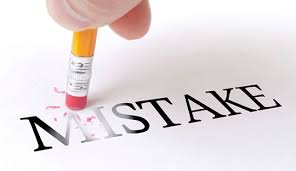Clean Up Your Criminal Record
“Expungement” is a term used when referring to a process of cleaning up your criminal record. In this process you request that the court reopen your criminal case, withdraw the plea or guilty verdict, dismiss the charges and re-close the case without a conviction. In effect, you are no longer a convicted person.
However, not all convictions can be dismissed. Expungement is limited to cases in which the defendant was convicted of a misdemeanor or a felony that could have been charged as a misdemeanor, and was sentenced to county jail time, probation, a fine, or a combination of those three. Additionally, the Penal Codes permitting expungement of criminal records expressly prohibit certain types of convictions from being dismissed. Most of these exceptions involve serious vehicle code violations or sexual offenses against minors. A detailed list of exceptions see California Penal Code section 1203.4
What Expungement Does Not Do
Although you conviction may be dismissed, restrictions resulting from the conviction cannot. Specifically, an expungement does not:
Remove the conviction from your criminal history. California and FBI criminal history records will still show the conviction and the subsequent dismissal.
Seal the court case file from public inspection. The court file remains public record.
Reinstate your right to possess firearms. In some cases, reduction of a non-violent felony to a misdemeanor may accomplish this.
Allow you to omit the conviction from application for government employment. If you are applying for a government job, a job that requires security clearance, or a job that requires a government-issued license, certificate, or permit, you must disclose the conviction and expungement.
Prevent the conviction from being used as a “prior.” The dismissed conviction can be used for determining sentencing enhancements in subsequent convictions.
Prevent the conviction from being used by the DMV. Expunged convictions may be used to suspend or revoke driving privileges.
What are the benefits of Expungement?
For mist people the benefits of expungement far outweigh these restrictions. first, under California Labor Code (Lab) 432.7, employers cannot ask about arrests that did not end in conviction, convictions that have been judicially dismissed, or about any diversion or similar programs. Once a conviction has been expunged, it becomes an arrest that did not end in conviction. Legally, you may answer “no” to these types of questions when applying for a job with a private employer.
In some situations, the conviction may prevent you from obtaining employment but having the conviction expunged will not. Many employers and military recruiters will ask that you have your record expunged prior to employment or enlistment in the military.
Do You Qualify for Expungement?
Your conviction must meet the guidelines described in California Penal Code section 1203.4, 1203.4(a) or Penal Code section 17. At least one year must have passed since your conviction. You must have completed the terms of your sentence such as payment of all fines and completion of alternative sentencing programs. You also cannot be serving a sentence for any offense, or be charged with the commission of any other offense. You must not have received another conviction within one year of the first, and probation must not have been revoked, and not reinstated.
Can I Request Expungement without an Attorney?
Yes. Most counties have a self-help center with the required forms to completed to request your expungement. However, the people at the self-help center are not attorneys and cannot give you legal advice. They can assist you in obtaining the proper forms and filing but cannot help you in completing the forms and answering any legal questions you may have.
Hiring experienced legal counsel to assist you with your expungement is not expensive. Call the EWING LAW GROUP at (916) 668-6786 to schedule a FREE consultation with one of our attorneys.

Comments are closed.